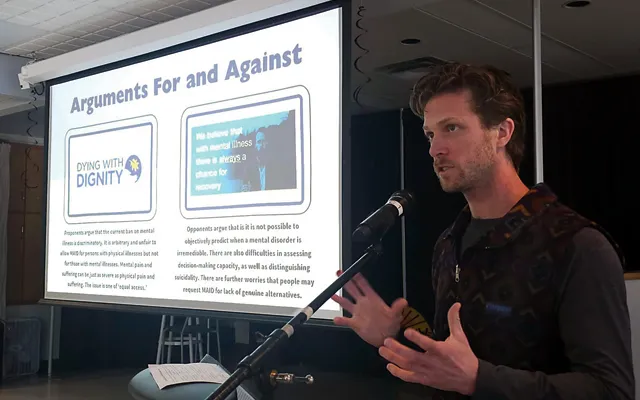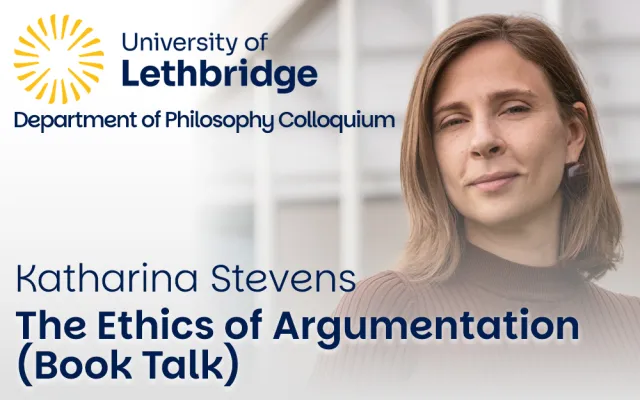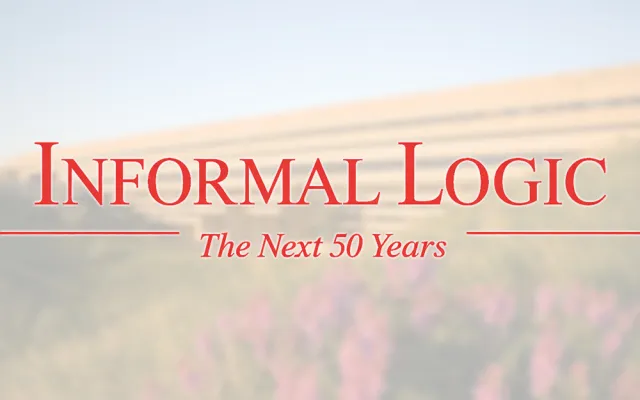Department of Philosophy
KNOWLEDGE. JUSTICE. REASONING.
Philosophy investigates fundamental questions about the nature of reality—about the universe as a whole, human beings, society, science, and morality. These questions underlie and unify the sciences and humanities. Philosophers explore deep theoretical, practical, and moral issues that do not easily fit into more specialized disciplines. Philosophy students learn about the basic intellectual foundations of our political, social, and legal systems, and of modern science and technology. Philosophy will challenge you with its reflective and critical approach to important, often puzzling questions about truth, knowledge, justice, the universe, and everything in between.
News and Upcoming Events

Dunn on MAID at SACPA
On Feb. 19, Nicholas Dunn spoke to the Southern Alberta Council on Public Affairs (SACPA) about the question of whether MAID should be available for persons with mental disorders. While MAID has been legal in Canada since 2016, the eligibility expansion for mental illness, which has been postponed twice, is set to take effect in March 2027. The event was covered by the Lethbridge Herald and Bridge City News.

Colloquium: Katharina Stevens
Katharina Stevens (University of Lethbridge) will be giving a Department of Philosophy Colloquium on Friday, February 27 at 3:30PM in room B716 (University Hall), on her new book The Ethics of Argumentation. Room TBD. Everyone is welcome. To join via Zoom, click here.

Workshop: Informal Logic
Join us for a workshop, "Informal Logic: The Next 50 Years", May 4-5 2026, to celebrate the move of the journal Informal Logic from the University of Windsor to the University of Lethbridge. Invited speakers include Scott Aikin (Vanderbilt), John Casey (Northeastern Illinois), Michael Baumtrog (Toronto Metropolitan), and Beth Innocenti (Kansas). Details to come!
